-
 Bitcoin
Bitcoin $113900
-1.39% -
 Ethereum
Ethereum $3517
-4.15% -
 XRP
XRP $3.009
1.59% -
 Tether USDt
Tether USDt $0.9997
-0.04% -
 BNB
BNB $766.8
-1.41% -
 Solana
Solana $164.6
-2.38% -
 USDC
USDC $0.9998
-0.02% -
 TRON
TRON $0.3277
0.65% -
 Dogecoin
Dogecoin $0.2023
-1.67% -
 Cardano
Cardano $0.7246
0.05% -
 Hyperliquid
Hyperliquid $38.27
-4.77% -
 Sui
Sui $3.528
-0.52% -
 Stellar
Stellar $0.3890
-0.73% -
 Chainlink
Chainlink $16.16
-2.69% -
 Bitcoin Cash
Bitcoin Cash $539.9
-4.38% -
 Hedera
Hedera $0.2425
-2.00% -
 Avalanche
Avalanche $21.71
-0.97% -
 Toncoin
Toncoin $3.662
5.73% -
 Ethena USDe
Ethena USDe $1.000
-0.02% -
 UNUS SED LEO
UNUS SED LEO $8.964
0.35% -
 Litecoin
Litecoin $107.7
2.33% -
 Shiba Inu
Shiba Inu $0.00001223
-0.40% -
 Polkadot
Polkadot $3.617
-0.97% -
 Uniswap
Uniswap $9.052
-2.49% -
 Monero
Monero $295.1
-3.79% -
 Dai
Dai $0.9999
0.00% -
 Bitget Token
Bitget Token $4.315
-1.85% -
 Pepe
Pepe $0.00001060
0.11% -
 Cronos
Cronos $0.1342
-2.72% -
 Aave
Aave $256.0
-0.87%
How to open contract trading for HTX? What materials are required for KYC certification?
To enable contract trading on HTX, log in, navigate to 'Contract', complete a risk assessment, accept terms, and finish KYC with ID, address proof, and a selfie.
May 18, 2025 at 05:56 pm
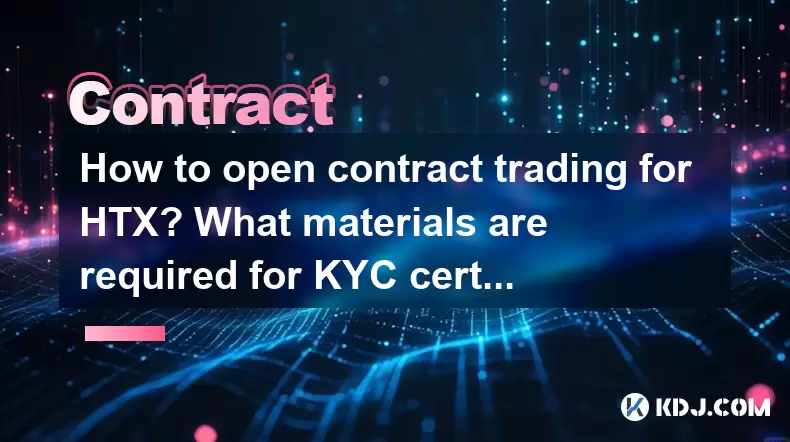
How to Open Contract Trading for HTX? What Materials Are Required for KYC Certification?
Opening contract trading on HTX and completing the KYC (Know Your Customer) certification process are crucial steps for any user looking to engage in cryptocurrency trading. This article will guide you through the detailed process of enabling contract trading on HTX and outline the specific materials required for KYC certification.
Enabling Contract Trading on HTX
To start trading contracts on HTX, you need to ensure that your account is fully set up and that you have completed the necessary verification steps. Here's how you can enable contract trading:
Log in to Your HTX Account: Open your preferred web browser and navigate to the HTX website. Enter your username and password to log in to your account.
Navigate to the Contract Trading Section: Once logged in, locate the 'Trade' or 'Markets' section on the HTX platform. From there, select 'Contract' to access the contract trading page.
Enable Contract Trading: On the contract trading page, you will see an option to enable contract trading. Click on the 'Enable' button. A pop-up window will appear asking you to confirm your action. Confirm to proceed.
Complete the Risk Assessment: HTX requires users to complete a risk assessment questionnaire before enabling contract trading. Answer the questions honestly and accurately. This step is crucial as it helps HTX assess your understanding of the risks involved in contract trading.
Review and Accept the Terms: After completing the risk assessment, you will be prompted to review and accept the terms and conditions of contract trading. Read through the terms carefully and check the box to accept them.
Verify Your Identity: If you haven't already done so, you will need to complete the KYC verification process. This step is mandatory for enabling contract trading.
Materials Required for KYC Certification
KYC certification is a critical step in ensuring the security and compliance of your HTX account. Here are the materials you will need to complete the KYC process:
Personal Identification Document: You will need to provide a valid government-issued ID. This can be a passport, driver's license, or national ID card. Ensure that the document is not expired and that all details are clearly visible.
Proof of Address: HTX requires a document that verifies your current address. Acceptable documents include utility bills, bank statements, or a government-issued letter. The document must be dated within the last three months and show your full name and address.
Selfie with ID: You will need to take a selfie holding your ID next to your face. This photo helps HTX verify that you are the person in the ID document. Ensure that the ID is clearly visible and that your face is fully visible in the photo.
Additional Information: Depending on your country of residence, HTX may request additional information such as your Social Security Number or National Insurance Number. Be prepared to provide this information if required.
Submitting KYC Documents on HTX
Once you have gathered all the necessary materials, follow these steps to submit your KYC documents on HTX:
Access the KYC Section: Log in to your HTX account and navigate to the 'Account' or 'Profile' section. Look for the 'KYC Verification' or 'Identity Verification' option and click on it.
Select Your Country: Choose your country of residence from the dropdown menu. This will determine the specific documents required for your KYC verification.
Upload Your Documents: Follow the prompts to upload your personal identification document, proof of address, and selfie with ID. Ensure that the files are in the accepted formats (usually JPEG or PNG) and that they are clear and legible.
Submit Your Application: After uploading all required documents, review the information to ensure everything is correct. Click on the 'Submit' button to send your KYC application for review.
Wait for Approval: The KYC verification process can take anywhere from a few hours to a few days, depending on the volume of applications. You will receive an email notification once your KYC status has been updated.
Troubleshooting Common KYC Issues
Sometimes, users may encounter issues during the KYC verification process. Here are some common problems and how to resolve them:
Document Rejection: If your documents are rejected, carefully read the rejection reason provided by HTX. Common reasons include unclear images, expired documents, or mismatched information. Re-upload the corrected documents and resubmit your application.
Pending Status: If your application remains in a pending status for an extended period, you can contact HTX customer support for an update. Provide your account details and a brief description of the issue.
Technical Errors: If you encounter technical issues while uploading documents, try clearing your browser cache and cookies, or use a different browser. If the problem persists, reach out to HTX support for assistance.
Verifying Contract Trading Activation
After completing the KYC verification and enabling contract trading, you should verify that your account is fully activated for contract trading:
Check Your Account Status: Log in to your HTX account and navigate to the 'Contract' trading section. If you see the option to place trades, your account is successfully activated for contract trading.
Place a Test Order: To ensure everything is working correctly, place a small test order. This will help you confirm that you can execute trades without any issues.
Monitor Your Account: Keep an eye on your account activity and ensure that all transactions are recorded accurately. If you notice any discrepancies, contact HTX support immediately.
Frequently Asked Questions
Q1: Can I use a digital version of my ID for KYC verification on HTX?
A1: HTX typically requires a clear, high-quality image of your physical ID. While some platforms may accept digital IDs, it's best to use a scanned or photographed version of your physical ID to avoid any potential issues during the verification process.
Q2: How long does it take to enable contract trading after KYC verification?
A2: Once your KYC verification is approved, enabling contract trading is usually instantaneous. However, it may take a few minutes for the changes to reflect on your account. If you encounter any delays, contact HTX support for assistance.
Q3: Is there a fee for enabling contract trading on HTX?
A3: HTX does not charge a fee specifically for enabling contract trading. However, be aware of the trading fees associated with executing contract trades, as these can vary depending on the type of contract and the volume of your trades.
Q4: Can I change my KYC information after it has been approved?
A4: If you need to update your KYC information, you can submit a new application with the updated documents. However, be prepared for the verification process to take some time, and ensure that all new information is accurate and up-to-date.
Disclaimer:info@kdj.com
The information provided is not trading advice. kdj.com does not assume any responsibility for any investments made based on the information provided in this article. Cryptocurrencies are highly volatile and it is highly recommended that you invest with caution after thorough research!
If you believe that the content used on this website infringes your copyright, please contact us immediately (info@kdj.com) and we will delete it promptly.
- Worldcoin, Identity, WLD Price: Decoding the NYC Crypto Buzz
- 2025-08-02 21:10:12
- Shiba Inu: Utility and Community Strength Drive Crypto's Evolution
- 2025-08-02 21:50:12
- Crypto Donations, Trump PAC, and Bitcoin: A New York Minute on Political Coin
- 2025-08-02 20:30:12
- Crypto Market Under Pressure: Bearish Momentum and Rising Volatility Take Hold
- 2025-08-02 20:30:12
- Crypto Market Carnage: Liquidations Soar as Ethereum and Bitcoin Take a Beating
- 2025-08-02 21:55:12
- DeFi Token Summer Gains: Is Mutuum Finance the Real Deal?
- 2025-08-02 18:30:12
Related knowledge
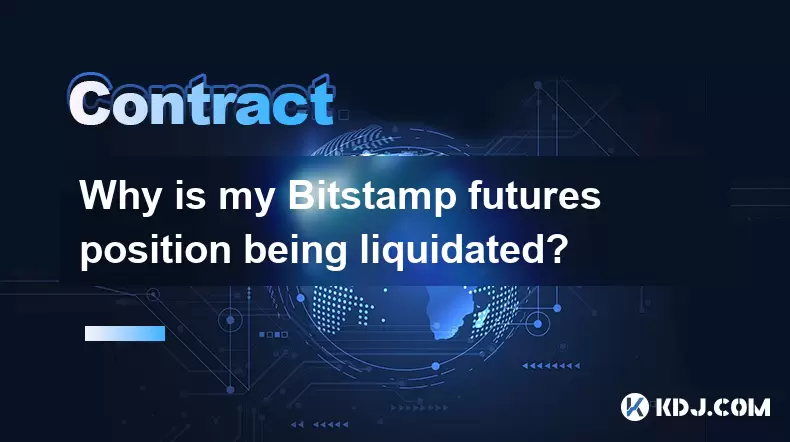
Why is my Bitstamp futures position being liquidated?
Jul 23,2025 at 11:08am
Understanding Futures Liquidation on BitstampFutures trading on Bitstamp involves borrowing funds to open leveraged positions, which amplifies both po...
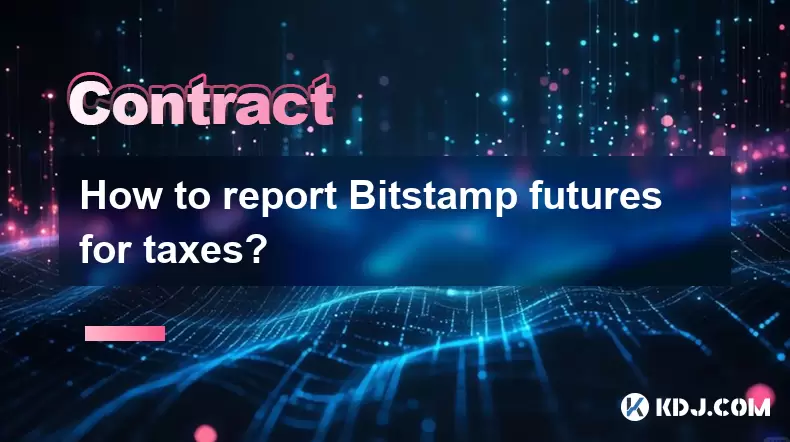
How to report Bitstamp futures for taxes?
Jul 30,2025 at 08:35am
Understanding Bitstamp Futures and Taxable EventsWhen trading Bitstamp futures, it’s essential to recognize that these financial instruments are treat...
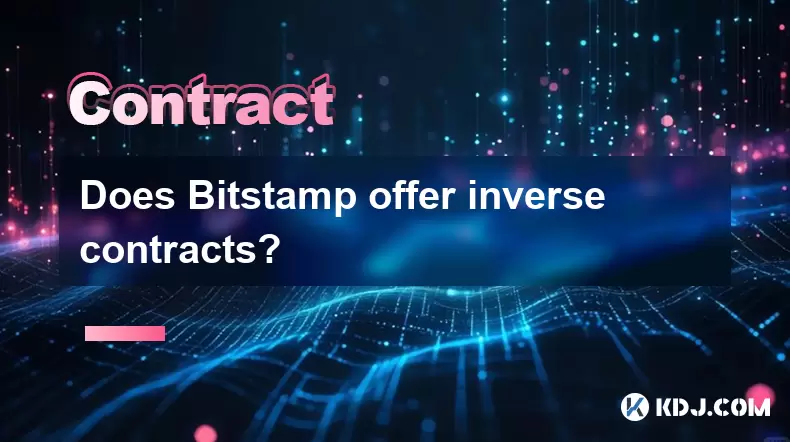
Does Bitstamp offer inverse contracts?
Jul 23,2025 at 01:28pm
Understanding Inverse Contracts in Cryptocurrency TradingIn the realm of cryptocurrency derivatives, inverse contracts are a specific type of futures ...
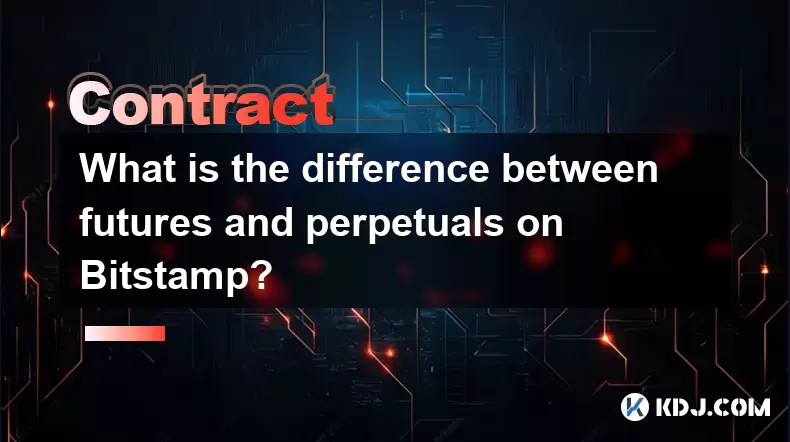
What is the difference between futures and perpetuals on Bitstamp?
Jul 27,2025 at 05:08am
Understanding Futures Contracts on BitstampFutures contracts on Bitstamp are financial derivatives that allow traders to speculate on the future price...
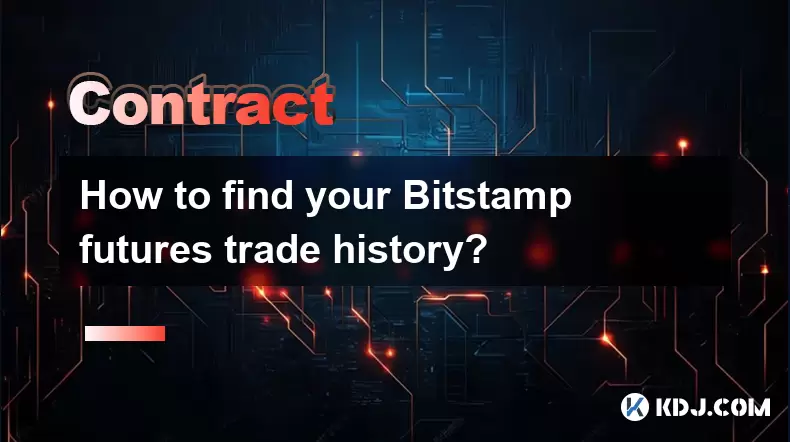
How to find your Bitstamp futures trade history?
Jul 23,2025 at 08:07am
Understanding Bitstamp and Futures Trading AvailabilityAs of the current state of Bitstamp’s service offerings, it is critical to clarify that Bitstam...
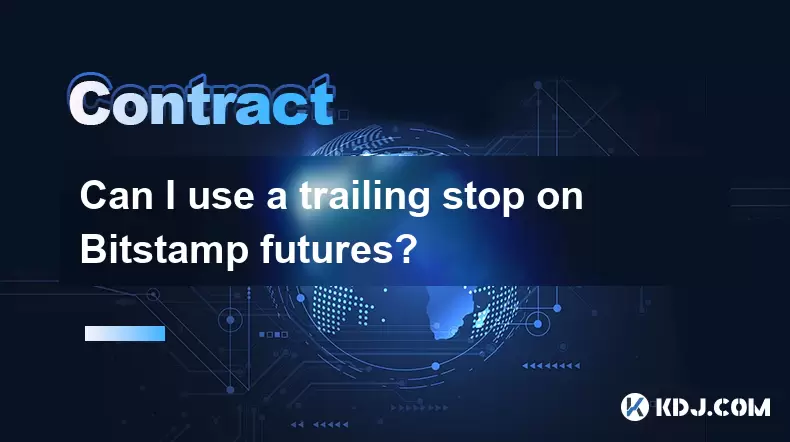
Can I use a trailing stop on Bitstamp futures?
Jul 23,2025 at 01:42pm
Understanding Trailing Stops in Cryptocurrency TradingA trailing stop is a dynamic type of stop-loss order that adjusts automatically as the price of ...

Why is my Bitstamp futures position being liquidated?
Jul 23,2025 at 11:08am
Understanding Futures Liquidation on BitstampFutures trading on Bitstamp involves borrowing funds to open leveraged positions, which amplifies both po...

How to report Bitstamp futures for taxes?
Jul 30,2025 at 08:35am
Understanding Bitstamp Futures and Taxable EventsWhen trading Bitstamp futures, it’s essential to recognize that these financial instruments are treat...

Does Bitstamp offer inverse contracts?
Jul 23,2025 at 01:28pm
Understanding Inverse Contracts in Cryptocurrency TradingIn the realm of cryptocurrency derivatives, inverse contracts are a specific type of futures ...

What is the difference between futures and perpetuals on Bitstamp?
Jul 27,2025 at 05:08am
Understanding Futures Contracts on BitstampFutures contracts on Bitstamp are financial derivatives that allow traders to speculate on the future price...

How to find your Bitstamp futures trade history?
Jul 23,2025 at 08:07am
Understanding Bitstamp and Futures Trading AvailabilityAs of the current state of Bitstamp’s service offerings, it is critical to clarify that Bitstam...

Can I use a trailing stop on Bitstamp futures?
Jul 23,2025 at 01:42pm
Understanding Trailing Stops in Cryptocurrency TradingA trailing stop is a dynamic type of stop-loss order that adjusts automatically as the price of ...
See all articles

























































































